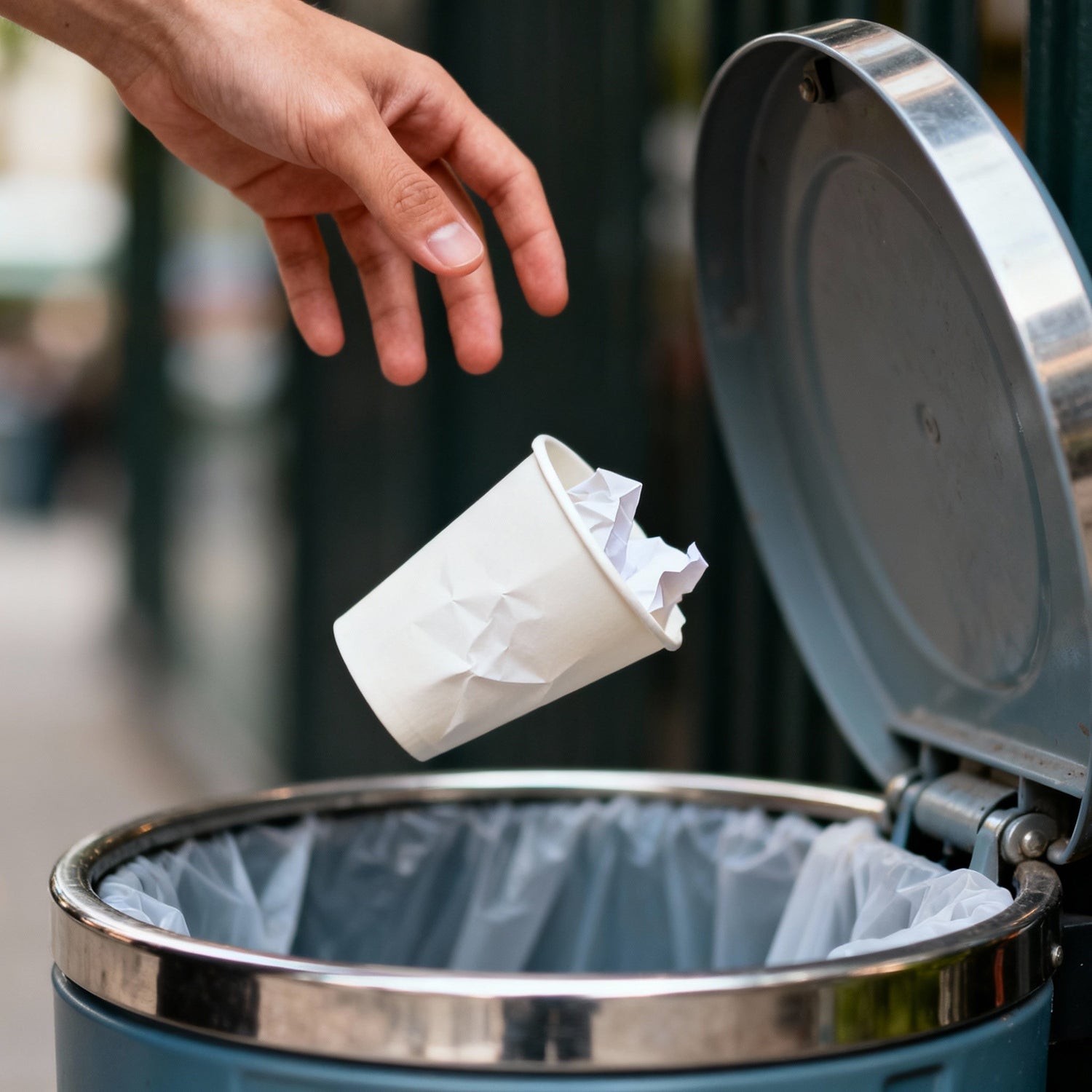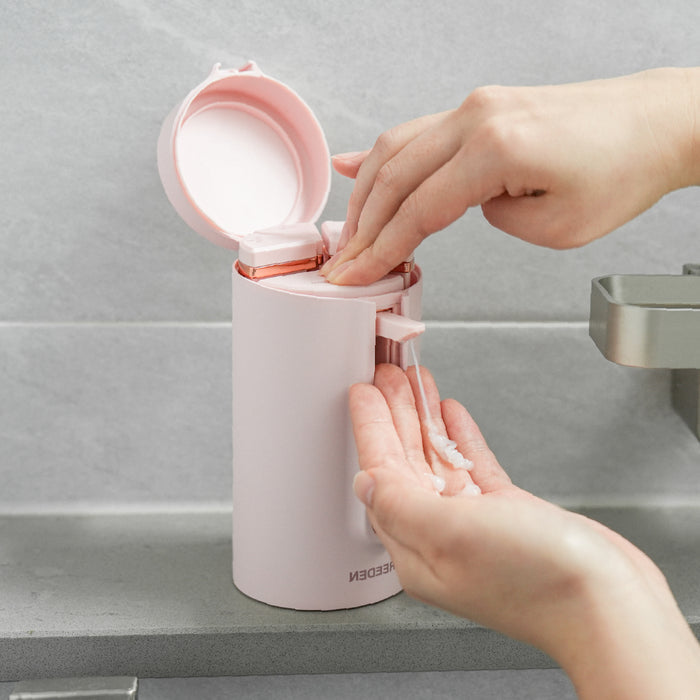The Uncomfortable Feeling We All Know

News about pollution, climate change, and the extinction of plants and animals is now a daily topic. At some point, we’ve all seen a headline and thought, “Environmental pollution is getting pretty serious.” Yet, even with this awareness, we continue our daily routines—using plastics, disposable cups, and cars, and wasting energy—all of which affect the environment.
This feeling of guilt—that discomfort or embarrassment we get when we know we should be doing more for the environment but aren't, or when we make a choice that we know is harmful—is called eco-guilt. The term combines "eco" (from ecology) and "guilt," and it refers to the inner conflict, shame, or sense of blame we feel from our environmentally harmful actions or inactions.
For instance, you might use a plastic straw and immediately think, “I know this is bad for the environment, so why am I using it?” and feel a pang of guilt. Or, you might toss a disposable takeout container without recycling it and feel a bit of discomfort. These are classic examples of eco-guilt. It also includes the slight unease you feel when you forget your reusable bag at the grocery store and have to get a plastic one, or the regret you have after running the air conditioner for a long time and thinking, "I should've turned it down."
Eco-guilt is a complex emotion and a psychological conflict between what we know we should do for the planet and how we live our daily lives. While it's something everyone can experience, it’s not just a negative feeling. In fact, it can be the starting point for small but meaningful changes.
Eco-Guilt: A Constructive Emotion for the Environmentally Conscious

Eco-guilt is a characteristic emotion that appears more often in people with a high level of environmental awareness. Research shows that people who are well-informed about environmental issues and recognize the means and opportunities for sustainable behavior tend to feel more eco-guilt. This isn't just a negative emotion; it's a natural psychological response stemming from a deep concern and sense of responsibility for the environment.
A recent study from the University of Copenhagen in Denmark confirmed that eco-guilt is more frequent in groups with high environmental concern (High EC). One study participant, Christina (45), explained her experience with eco-guilt: "I'm perfectly aware that you shouldn't just fly to Thailand just because you want to. From a climate perspective, it makes no sense at all. But I still fly to Thailand because I want to." Another participant, Lars (47), said, "Am I ashamed, or do I feel bad about it? Of course, I feel a little bit guilty about living so affluent and having so many opportunities in Denmark and still polluting like crazy."
Eco-guilt isn't just self-blame; it’s a powerful motivator for real behavioral change. A study in Korea also found that the environmental awareness and eco-guilt of food delivery consumers positively influenced their pro-environmental behavior. The higher the environmental knowledge and concern, the more sustainable actions people took, and eco-guilt strengthened this relationship even further.
Beyond Eco-Guilt:
The Journey of Change

Since eco-guilt is such a strong driver of change, it is crucial to turn this feeling into action. It only has real meaning when it moves beyond a simple sense of guilt and transforms into specific, concrete behaviors.
Around the world, we are seeing more and more examples of how small, individual changes create a ripple effect. A 65-year-old participant in the Copenhagen study said, "My motivation to limit buying plastic toys is knowing that it will make me feel bad," showing how eco-guilt can serve a preventative purpose. Another participant described eco-guilt as "the necessary 'push' towards more sustainable action."
Here are some examples from Korea that show how eco-guilt can be transformed into action.
1. The Spread of Plogging Culture
Plogging, a combination of jogging and picking up trash, is a great example of an activity that benefits both personal health and the environment. It fits perfectly into the lifestyle of the Gen Z generation by combining exercise and community service. By adding an "environmental challenge" to the popular running culture, it reinforces the motivation to exercise regularly while also contributing to cleaning up local communities. People who have taken up plogging say it has helped them realize the importance of small, daily actions for the environment and has committed them to keep going.
2. The Realistic Shift from Zero Waste to Low Waste
Feeling the pressure of a perfect zero-waste lifestyle, a member of the Slow Recipe team, Kim Young-hyun (31), switched to a "low-waste" approach to escape the guilt of not always meeting her own ethical standards. This move from perfection to consistency makes sustainable living much more achievable. Another person, Gong Yoo-kyung (26), changed her consumption habits to be more mindful, stating, "A life with less meaningless consumption is a truly sustainable life."
3. Continued Participation in Cosmetic Bottle Collection Campaigns
Amorepacific’s “Empty Bottle Collection Campaign” has been a consistent effort since 2003, collecting and recycling about 2,471 tons of cosmetic bottles through 2022. This is a great example of a company and its customers working together for the environment. Participants receive incentives like discounts on refill products and points, and they get the satisfaction of contributing to a circular economy and preventing soil and ocean pollution from waste.
4. The Rise and Spread of Zero-Waste Stores
Zero-waste stores are becoming more common globally, offering refill systems that allow customers to buy only what they need. By bringing their own containers to purchase things like nuts, grains, detergents, and olive oil by weight, customers can significantly reduce packaging waste. As one shopper put it, “It's a win-win: you help the environment by not creating waste and you save money, too.”
For these environmental efforts to be successful, the following factors are key:
A Gradual Approach: It’s more sustainable to start with small changes and build on them rather than striving for perfection.
Community Participation: Engaging in environmental activities with others is more effective at turning eco-guilt into constructive action.
Systemic Support: Policies from corporations and governments can make individual actions easier and help them become widespread.
Visible Results: Being able to see concrete results, whether through social media posts or specific metrics, provides a powerful incentive to keep going.
Eco-guilt is a healthy emotion that reflects our moral sensitivity to the environment. The important thing is not to let this feeling end in self-reproach but to use it as a starting point for tangible, achievable actions. As the examples above show, a change that starts small with one person can create a hopeful message of sustainable change for society as a whole.
How to Overcome Eco-Guilt with Slow Recipe
Small daily purchases can lead to big change. Explore the sustainable lifestyle products at slowrecipe.com to ease your eco-guilt and enjoy the pleasure of protecting the environment.
1. Natural Soap Bars & Shampoo Bars
These solid soaps and shampoo bars eliminate plastic bottles, minimizing packaging waste.
Made with plant-based oils and natural ingredients, they are gentle on your skin and easy to carry when you travel.
2. Reusable Cotton Dishcloths & Scrubbers
Instead of disposable paper towels, use washable cotton dishcloths.
You can wash and reuse them, which reduces paper waste and keeps your kitchen clean and hygienic.
3. Tumblers & Stainless Steel Straws
These lightweight tumblers and reusable straws are perfect for replacing disposable cups and plastic straws.
When you get takeout coffee, you can get a discount by using your own tumbler and you won’t need a separate straw.
Start making a small but meaningful change by using Slow Recipe’s solid products and reusable household goods to transform your eco-guilt into action.







